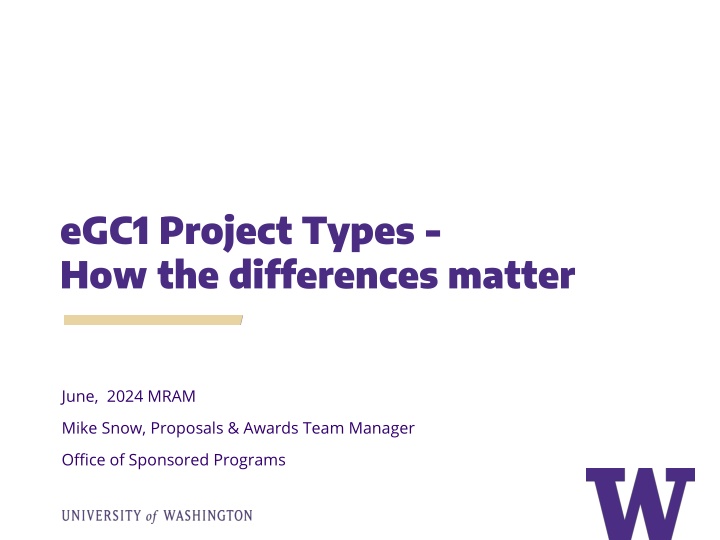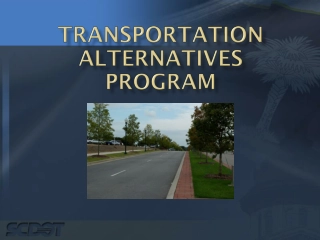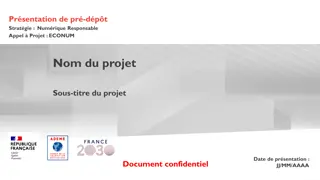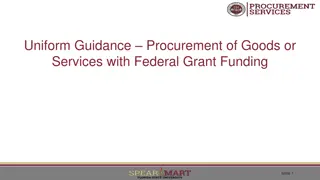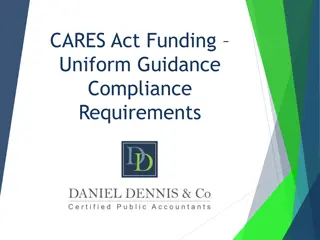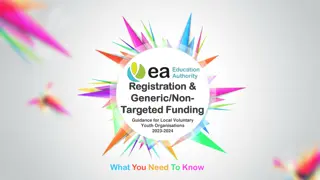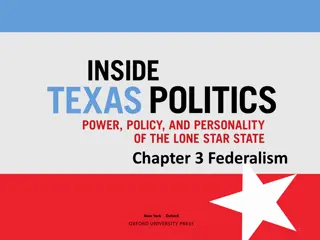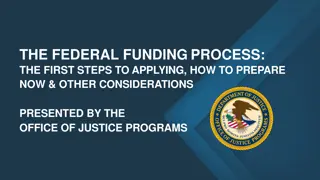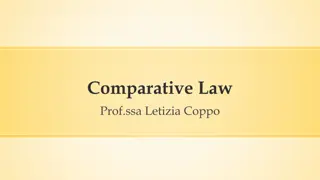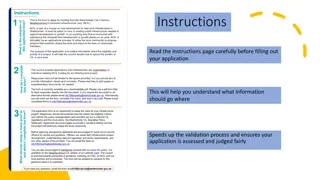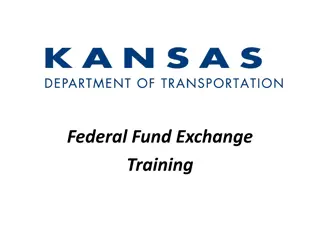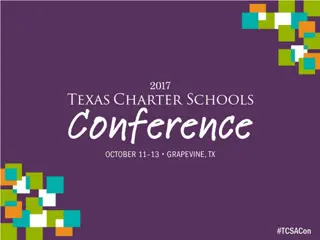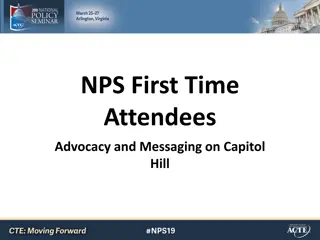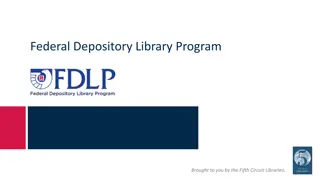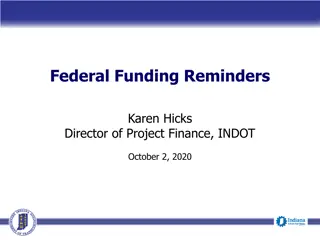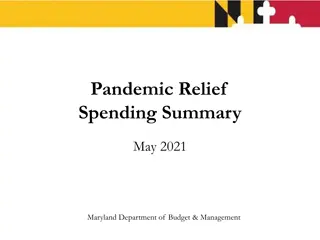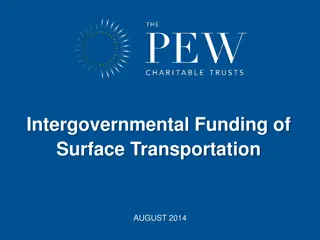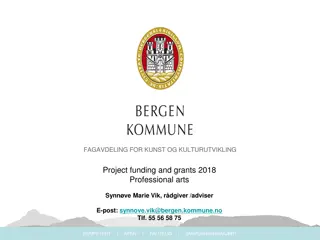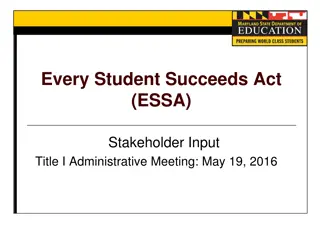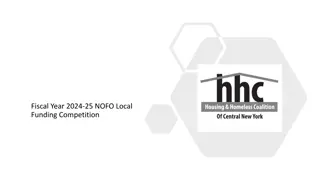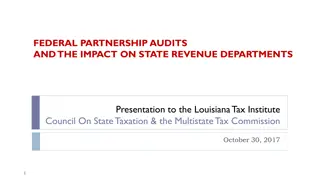Project Types for Federal Funding
Distinctions between Federal Grants, Cooperative Agreements, Contracts, and Other Transaction Authority in the context of eGC1 submissions and federal assistance programs. Learn how selecting the correct project type can optimize OSP review processes and ensure compliance with regulatory frameworks.
Download Presentation

Please find below an Image/Link to download the presentation.
The content on the website is provided AS IS for your information and personal use only. It may not be sold, licensed, or shared on other websites without obtaining consent from the author.If you encounter any issues during the download, it is possible that the publisher has removed the file from their server.
You are allowed to download the files provided on this website for personal or commercial use, subject to the condition that they are used lawfully. All files are the property of their respective owners.
The content on the website is provided AS IS for your information and personal use only. It may not be sold, licensed, or shared on other websites without obtaining consent from the author.
E N D
Presentation Transcript
eGC1 Project Types - How the differences matter June, 2024 MRAM Mike Snow, Proposals & Awards Team Manager Office of Sponsored Programs
Selecting Project Type on an eGC1 > Required field on an eGC1 > Options: Grant, Contract, Cooperative Agreement, or Other Transaction Authority > Selecting correct project type when preparing an eGC1 helps speed up OSP s review. > Should be identified on both the Funding Opportunity and the Notice of Award.
Federal Grants & Cooperative Agreements - Shared Elements Federal Assistance > Award carries an Assistance Listing Number (formerly CFDA number) > Federal agency authority is from Federal Grant and Cooperative Agreement Act > Regulatory framework Uniform Guidance 2 CFR Part 200
Federal Grant or Cooperative Agreement Grant > Award of financial assistance only > PI has flexibility to adapt project within proposed scope Cooperative Agreement > Substantial federal involvement in project as determined by agency program staff > May include additional terms and conditions consistent with agency involvement
Federal Acquisition - Contracts > Proposals often structured in two parts or volumes Technical proposal Business or cost proposal > Performance period may have an initial base period and one or more options > Regulatory framework is 48 CFR, Chapter 1 Federal Acquisition Regulation (FAR) and related agency- specific regulations > Applicant referred to as Offeror
Federal - Other Transaction Authority (OTA) Neither grant or cooperative agreement nor contract. To issue federal agency must either: > Have explicit statutory authority to enter into an other transaction that is not a grant or contract, OR > Issue award based on statutory provisions that make the funding exempt from the Federal Grant and Cooperative Agreement Act OTA is not a catch-all category for things that don t fit elsewhere.
Non-Federal Flow Through When the sponsor to the UW is a pass-through entity (PTE), mechanism prime sponsor is using will drive what OSP considers the Project Type . > e.g. Department of Defense grant flows-through a PTE to the UW. You select Project Type Grant . > It makes no difference what the PTE calls the agreement issued to UW. Project Type for non-federal sponsors can only be OTA if the prime federal sponsor issued the PTE an OTA.
Non-Profit & Industry Sponsors Non-Profit Sponsors Usually issue sponsored program funding as a grant. A contract from a non-profit is often an indication that the work is services, not a sponsored program. Industry Sponsors Mostly fund research via contracts. Sometimes, they may issue grants for educational programs or fellowships. What s the difference between a sponsored program and a service?
Review Implications Federal Contracts & OTAs Federal contracts and OTAs have specialized and sometimes, unique, requirements which involve a different approach to review and, therefore, take longer to review. This is also true in instances where the UW will receive federal contract or OTA flow-through funding. Why should I route an eGC1 for a Contract or an Other Transaction to OSP ASAP?
Why does review takes longer for Contracts & OTAs? (1 of 2) > Accepting terms & conditions of an award at time of proposal > Requiring additional representations and certifications that need verification > Making proposed subrecipients aware of & prepared to follow federal requirements. > Proposal elements that require input from other central UW offices outside of dept. and OSP such as Export Controls review Procurement & small business subcontracting plan
Why does review takes longer for Contracts & OTAs? (2 of 2) > Understanding if restricted research might involve classified information or CUI > Reviewing publication restrictions, rights to Intellectual Property, title to property/equipment > Reviewing data privacy & security requirements adequately addressed in the proposal Additional time also needed if a teaming agreement is involved.
Routing Recommendations Federal Contracts & OTAs > Route draft proposals for these as early as possible and not later than 7 business days before the sponsor deadline. This includes federal flow-through contracts & OTAs. > Especially important when the UW has to negotiate or accept award terms & conditions at time of proposal submission. > Don t wait until the 3 business day GIM 19 deadline to route these! Waiting can negatively impact proposal review & submission, including whether we can submit the proposal, as well as the ability to accept an award.
Resources > How do I know what project type to select on an eGC1 and why is it important? > Why should I route an eGC1 for Contracts & Other Transactions to OSP ASAP? > What s the difference between a sponsored program and a service?
